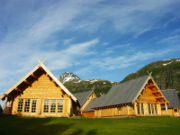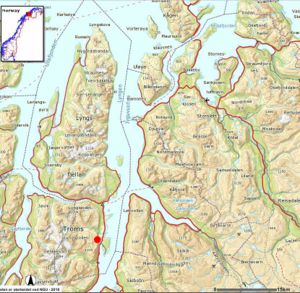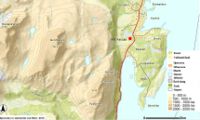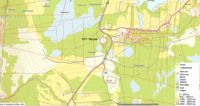Short-traveled energy
The MIT-FabLab in Lyngen, Norway is searching for feedback, ideas, and personal experience that can be compiled for its Short-traveled Energy project. The project’s goal is to construct a prototype energy system that takes into consideration all aspects needed to support local sustainability. Simply put, the project will be guided by its impacts and benefits generated from social, environmental,and techno/economic perspectives in an open and creative way. At the end, a set of guidelines should be available for similar types of projects around the FabLab network .

Process
The base information about the project will be presented through 7 resource categories; physical, economic, biological, organizational, social, cultural,and aesthetic resources available. By considering resources that influence sustainability the project can draw from more than just a technical pot of knowledge. By hosting this forum as a wiki, collaborators are able to build off other’s posts as well as follow the progress of the project. Detailed information can also be requested as the wiki page will be updated vigorously.
Result
A prototype system that provides sustainable energy for the lab will be the physical result of the project. Lessons learned along the way combined with local input and other’s experiences with local energy generation and use are considered to be the most valuable outcomes. The entire process will also be documented and presented in a standard form so that similar projects can be built around the world using information guided by local conditions, problems, and their solutions.
All levels of involvement are welcome from one-time single suggestions to constant in-depth critique.
Lyngen
The town of Lyngen is located on the Lyngen penninsula in the Troms region of the northern part of Norway.
Seven Resources
PEBOSCA
The PEBOSCA frame-work is a product of the 1996 United NationsHabitat II Agenda. It is a resource frame-work used for assessing and categorizing resources important to the sustainability. The seven resources will be used to present a general overview of ground data important to the project as well as track impacts and benefits during and after the project is complete.
Physical resources: Water, wind, solar, geothermal, land etc.
Economic resources: Major contributors, services available, project viability etc.
Biological resources: Ecosystems, biotopes etc.
Organizational resources: Infrastructure, local laws, planning procedures, etc.
Social resources: Communication, meeting places, opportunities etc.
Cultural resources: Local knowledge, Traditions new and old, art, etc.
Aesthetic resources: Impacts on the senses that shape the area.


